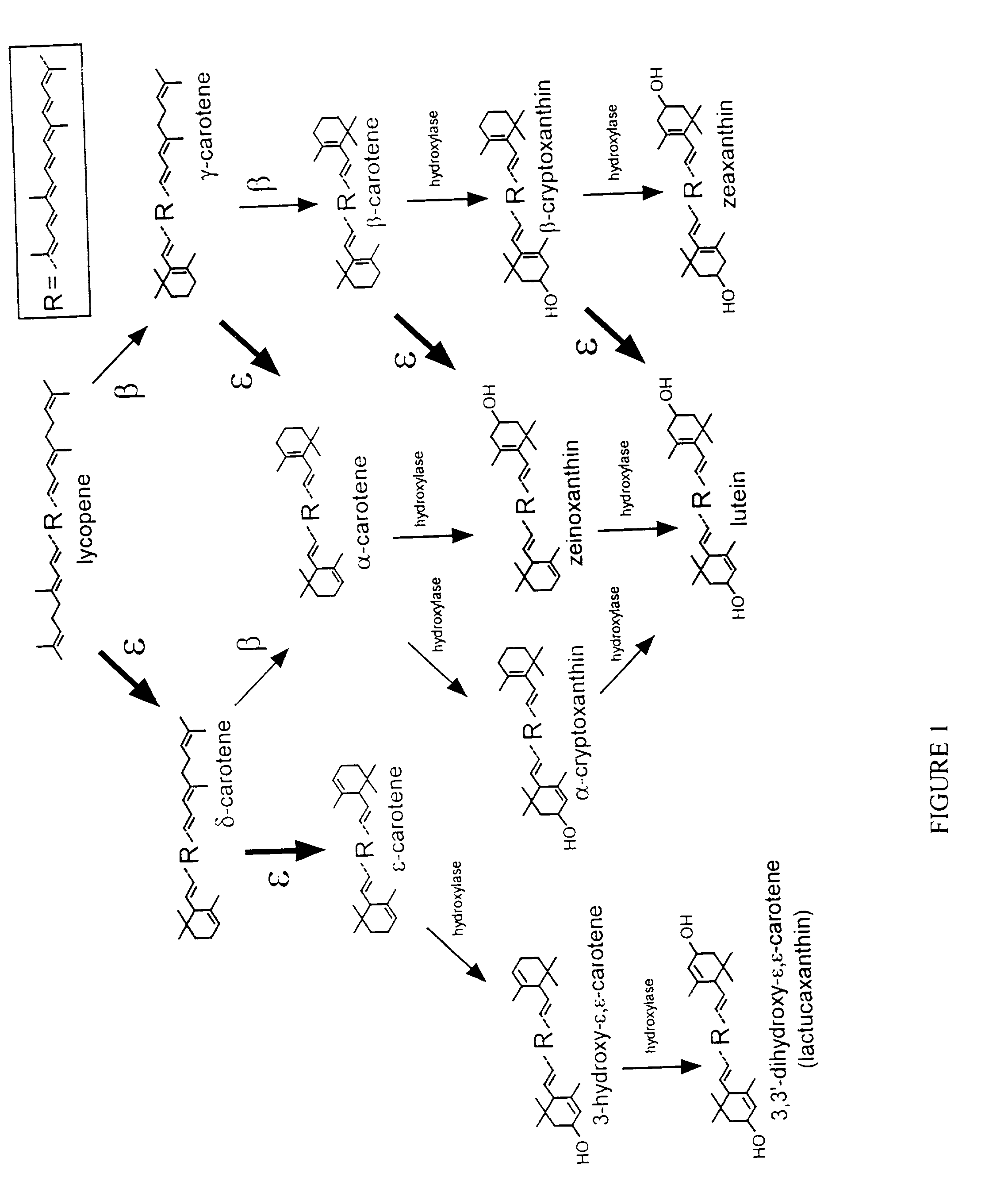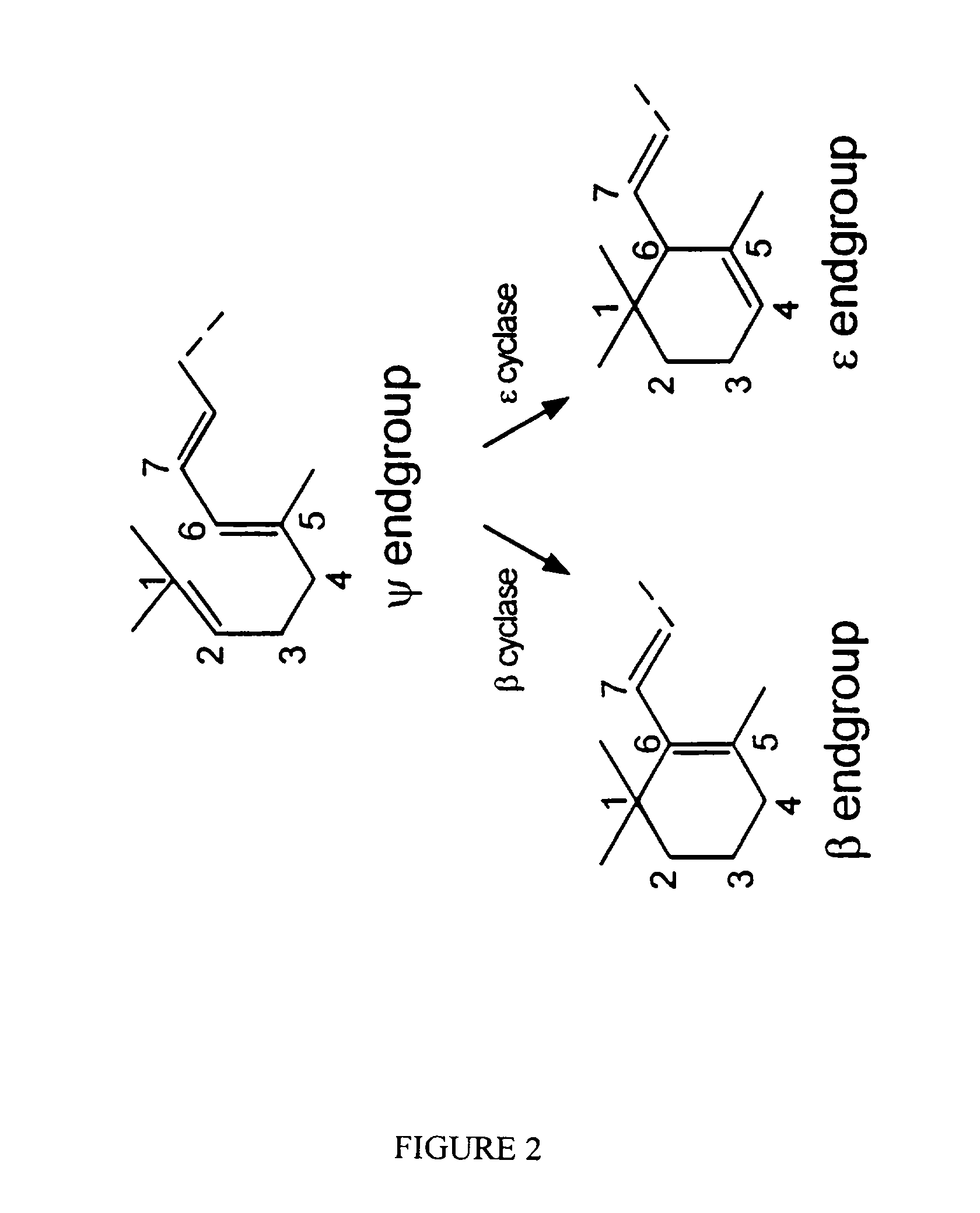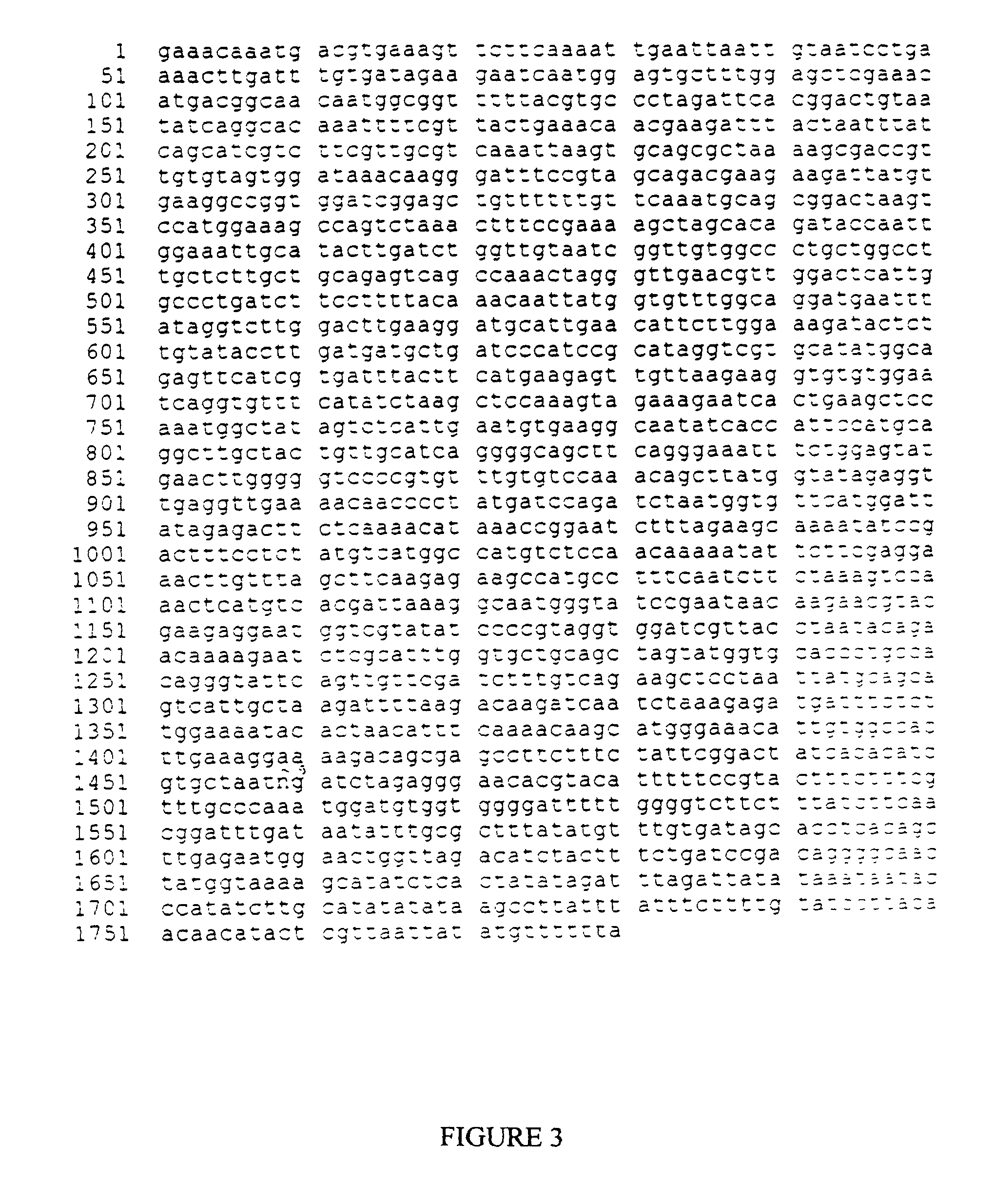Genes encoding epsilon lycopene cyclase and method for producing bicyclic carotene
a technology of lycopene and lycopene, which is applied in the field of dna sequence of eukaryotic genes encoding . epsilon lycopene cyclase and producing bicyclic carotene, can solve the problems of low sequence similarity between bacterial/fungal and cyanobacterial/plant genes, and is difficult to screen for a gene with similar function in another sour
- Summary
- Abstract
- Description
- Claims
- Application Information
AI Technical Summary
Problems solved by technology
Method used
Image
Examples
Embodiment Construction
[0057] Isolation of Lycopene Epsilon Cyclase
[0058] The lycopene epsilon cyclase was isolated from a romaine lettuce library obtained from Dr. Harry Y. Yamamoto (University of Hawaii, Honolulu) essentially as disclosed in Cunningham et al, 1996, supra, and Bugos and Yamamoto (1996) Proc. Natl. Acad. Sci. USA 93:6320-6325, both of which are incorporated herein by reference in their entireties. Functional clones were identified by the color complementation test.
[0059] Pigment Analysis
[0060] A single colony was used to inoculate 50 ml of LB containing ampicillin and chloramphenicol in a 250-ml flask. Cultures were incubated at 28.degree. C. for 36 hours with gentle shaking, and then harvested at 5000 rpm in an SS-34 rotor. The cells were washed once with distilled H.sub.2O and resuspended with 0.5 ml of water. The extraction procedures and HPLC were essentially as described previously (Cunningham et al, 1994).
[0061] Organisms and Growth Conditions
[0062] E. coli strains TOP10 and TOP10 F...
PUM
| Property | Measurement | Unit |
|---|---|---|
| temperature | aaaaa | aaaaa |
| temperature | aaaaa | aaaaa |
| volume | aaaaa | aaaaa |
Abstract
Description
Claims
Application Information
 Login to View More
Login to View More - R&D
- Intellectual Property
- Life Sciences
- Materials
- Tech Scout
- Unparalleled Data Quality
- Higher Quality Content
- 60% Fewer Hallucinations
Browse by: Latest US Patents, China's latest patents, Technical Efficacy Thesaurus, Application Domain, Technology Topic, Popular Technical Reports.
© 2025 PatSnap. All rights reserved.Legal|Privacy policy|Modern Slavery Act Transparency Statement|Sitemap|About US| Contact US: help@patsnap.com



